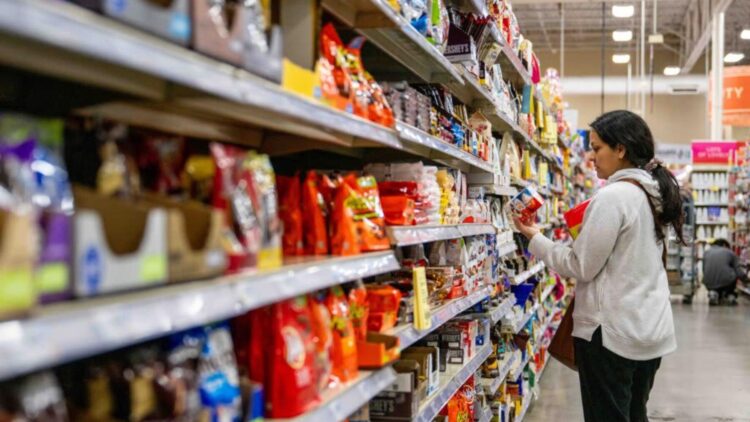The obesity epidemic in the US has gone from worrisome to almost catastrophic. The fact that food companies are barely regulated and can add any ingredients they wish to their products as long as they will not outright kill you is preposterous and many of the most popular brands even engage in false advertising to reassure customers that their ultra processed foods are healthy when they are not. In a surprising and unexpected move, the state of Texas has passed some regulations to change the way consumers perceive food, and they are doing so by changing the way the packaging looks.
Ultra processed food packaging has always been the same, bright, attractive and full of half truths and no health claims whatsoever, but Texas wants to change this to make it more apparent that some of these products contain ingredients that are not actually fir for human consumption and consumers should be aware of this before choosing to purchase and consume them.
The new Texas law that regulates ultra processed foods
To make these foods as addictive and palatable as possible, companies must change the ingredients from raw materials that just taste good to former versions of themselves that can now rewire your brain. The Bill that is attempting to correct it, or at least warn customers, is Senate Bill 25, which already passed through the state Senate and is now waiting for Governor Greg Abbott to either sign it or kill it.
This Bill would make companies put a warning label on any packaged food that includes certain ingredients considered “unfit for human consumption” starting in 2027. It targets a list of 40 specific additives, including things like artificial colors and bleached flour, most of which are in plenty of these ultra processed foods and that we already know should not be consumed in anything more than extreme moderation.
Supporters of the Bill believe that is not about banning the ingredients as they are technically safe and will not kill consumers in moderation, but it is all about being honest with the public and giving people a clearer picture of what they are eating without all the confusing marketing spin that companies have been known to use to mitigate bad publicity.
Opponents of theBill seem stuck on the fact that “The ingredients used in the US food supply are safe,” but safe does not mean good and the distinction should be done and done correctly.
Of course, the idea has not gone over well with big food companies like PepsiCo, Coca-Cola, Walmart, and Mondelez, who are some of the biggest producers of these kinds of products and can call the US their biggest market for these unhealthy foods, especially states like Texas that have little to no food safety standards and regulations. The companies sent a collective letter to Texas lawmakers arguing that this law leans too heavily on international standards and disregards US regulations, especially those from the FDA. From their perspective, extra warnings would just confuse people and tarnish their brands’ reputations.
John Hewitt, VP of the Consumer Brands Association, did not mince words. He described the bill as both a “legal and business threat” and claimed it would “impose inaccurate warnings and cause uncertainty.” Companies are worried that they would have to either change their recipes or overhaul their packaging, both expensive options that they clearly are not thrilled about.
Even though the state’s Health and Human Services Secretary is backing the idea, it is hard to say what will happen next. Texas has a solid reputation for being friendly to businesses, and a lot of consumers think Governor Abbott might hesitate to go against major corporations, but considering that all these companies operate in Europe and do so while following even stricter regulations that what is stated on this bill, this just seems like a ploy to have them continue to earn more and more money by producing lesser quality products that can slowly kill the population.

